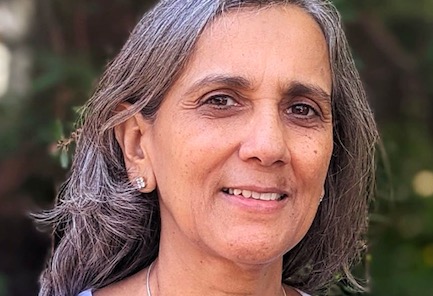
The following is a summary of Rohini Somanathan's keynote address to attendees at the Fifth Conference of Government and Economics held at Tsinghua University, Beijing, on April 22, 2022. Dr. Somanathan is a professor of economics at the Delhi School of Economics.
On April 27, 2023, the Fifth Annual Conference of Government and Economics, co-hosted by the Society for the Analysis of Government and Economics (SAGE) along with Tsinghua University's School of Social Sciences and the Academic Center for Chinese Economic Practice and Thinking (ACCEPT), was broadcasted online. Rohini Somanathan, a professor of economics at the Delhi School of Economics, addressed attendees at the conference by introducing insights from some of her research findings in a keynote speech delivered online via video presentation.
Rohini Somanathan shared some of India's experiences dealing with issues related to identity and public policy, discussing how India might better achieve the dual goals of economic expansion and social justice in the context of a globalized world. As she pointed out, for historical reasons, there still exists large inequalities between different groups of people living in India. During British colonial rule from 1901 to 1931, Brahmins were the highest caste, having at that time achieved a literacy rate of 50%. The groups at the bottom of society, such as the Chamars, Santals and Gonds, meanwhile all had literacy rates closer to zero. After independence, India put in place laws to promote social equality, with the constitution mandating that political representation in the legislature should be commensurate with the proportion of the population shares for each respective minority group, in addition to mandating similar quotas for both federal employment and higher education. Starting in the 1970s, the Indian government implemented a minimum needs program that established certain criteria for the population, stipulating that there must be primary schools within one mile of each village and high schools within three kilometers. But in the decades that followed, and despite access to education having increased dramatically, significant inequalities persisted between different castes and groups—though with the southwestern state of Kerala having been the exception. Although there were many disparities in Kerala, the most important feature of the state is that its population is much more concentrated, which hence made the provision of public goods more practicable, and as a result it enjoyed higher levels of education and greater social mobility.
Somanathan argued that in order to make societies more equal, governments need to throw their weight behind a significant expansion in the supply of public goods. This can help to promote equitable economic development while eliminating the ongoing tension between equity and growth. The provision of public goods not only increases the mobility of disadvantaged groups, but also creates more educational opportunities. In an era of economic globalization, this will also have the advantage of generating higher returns.